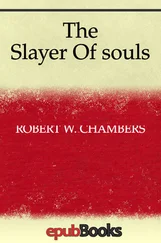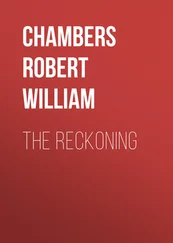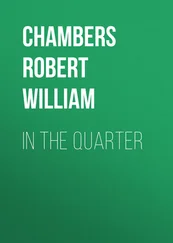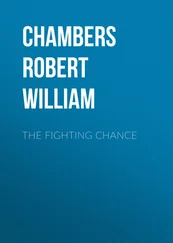The young man sat silent, frowning into space; then:
"I tell you plainly enough that I have come here to argue with two men at the end of a pistol; and—you tell me I'm in love. By what logic—"
"It is written in your face, Mr. Burke—in your eyes, in every feature, every muscle's contraction, every modulation of your voice. My tables, containing six hundred classified superficial phenomena peculiar to all human emotions, have been compiled and scientifically arranged according to Bertillon's system. It is an absolutely accurate key to every phase of human emotion, from hate, through all its amazingly paradoxical phenomena, to love, with all its genera under the suborder—all its species, subspecies, and varieties."
He leaned back, surveying the young man with kindly amusement.
"You talk of pistol range, but you are thinking of something more fatal than bullets, Mr. Burke. You are thinking of love—of the first, great, absorbing, unreasoning passion that has ever shaken you, blinded you, seized you and dragged you out of the ordered path of life, to push you violently into the strange and unexplored! That is what stares out on the world through those haunted eyes of yours, when the smile dies out and you are off your guard; that is what is hardening those flat, clean bands of muscle in jaw and cheek; that is what those hints of shadow mean beneath the eye, that new and delicate pinch to the nostril, that refining, almost to sharpness, of the nose, that sensitive edging to the lips, and the lean delicacy of the chin."
He bent slightly forward in his chair.
"There is all that there, Mr. Burke, and something else—the glimmering dawn of desperation."
"Yes," said the other, "that is there. I am desperate."
" Ex actly. Also you wear two revolvers in a light, leather harness strapped up under your armpits," said the Tracer, laughing. "Take them off, Mr. Burke. There is nothing to be gained in shooting up Mr. Smiles or converting Mr. Gandon into nitrates."
"If it is a matter where one man can help another," the Tracer added simply, "it would give me pleasure to place my resources at your command—without recompense—"
"Mr. Keen!" said Burke, astonished.
"Yes?"
"You are very amiable; I had not wished—had not expected anything except professional interest from you."
"Why not? I like you, Mr. Burke."
The utter disarming candor of this quiet, elderly gentleman silenced the younger man with a suddenness born of emotions long crushed, long relentlessly mastered, and which now, in revolt, shook him fiercely in every fiber. All at once he felt very young, very helpless in the world—that same world through which, until within a few weeks, he had roved so confidently, so arrogantly, challenging man and the gods themselves in the pride of his strength and youth.
But now, halting, bewildered, lost amid the strange maze of byways whither impulse had lured and abandoned him, he looked out into a world of wilderness and unfamiliar stars and shadow shapes undreamed of, and he knew not which way to turn—not even how to return along the ways his impetuous feet had trodden in this strange and hopeless quest of his.
"How can you help me?" he said bluntly, while the quivering undertone rang in spite of him. "Yes, I am in love; but how can any living man help me?"
"Are you in love with the dead?" asked the Tracer gravely. "For that only is hopeless. Are you in love with one who is not living?"
"Yes."
"You love one whom you know to be dead?"
"Yes; dead."
"How do you know that she is dead?"
"That is not the question. I knew that when I fell in love with her. It is not that which appals me; I ask nothing more than to live my life out loving the dead. I—I ask very little."
He passed his unsteady hand across his dry lips, across his eyes and forehead, then laid his clinched fist on the table.
"Some men remain constant to a memory; some to a picture—sane, wholesome, normal men. Some men, with a fixed ideal, never encounter its facsimile, and so never love. There is nothing strange, after all, in this; nothing abnormal, nothing unwholesome. Grünwald loved the marble head and shoulders of the lovely Amazon in the Munich Museum; he died unmarried, leaving the charities and good deeds of a blameless life to justify him. Sir Henry Guest, the great surgeon who worked among the poor without recompense, loved Gainsborough's 'Lady Wilton.' The portrait hangs above his tomb in St. Clement's Hundreds. D'Epernay loved Mlle. Jeanne Vacaresco, who died before he was born. And I—I love in my own fashion."
His low voice rang with the repressed undertone of excitement; he opened and closed his clinched hand as though controlling the lever of his emotions.
"What can you do for a man who loves the shadow of Life?" he asked.
"If you love the shadow because the substance has passed away—if you love the soul because the dust has returned to the earth as it was—"
"It has not !" said the younger man.
The Tracer said very gravely: "It is written that whenever 'the Silver Cord' is loosed, 'then shall the dust return unto the earth as it was, and the spirit shall return unto Him who gave it.'"
"The spirit—yes; that has taken its splendid flight—"
His voice choked up, died out; he strove to speak again, but could not. The Tracer let him alone, and bent again over his desk, drawing imaginary circles on the stained blotter, while moment after moment passed under the tension of that fiercest of all struggles, when a man sits throttling his own soul into silence.
And, after a long time, Burke lifted a haggard face from the cradle of his crossed arms and shook his shoulders, drawing a deep, steady breath.
"Listen to me !" he said in an altered voice.
And the Tracer of Lost Persons nodded.
"When I left the Point I was assigned to the colored cavalry. They are good men; we went up Kettle Hill together. Then came the Philippine troubles, then that Chinese affair. Then I did staff duty, and could not stand the inactivity and resigned. They had no use for me in Manchuria; I tired of waiting, and went to Venezuela. The prospects for service there were absurd; I heard of the Moorish troubles and went to Morocco. Others of my sort swarmed there; matters dragged and dragged, and the Kaiser never meant business, anyway.
"Being independent, and my means permitting me, I got some shooting in the back country. This all degenerated into the merest nomadic wandering—nothing but sand, camels, ruins, tents, white walls, and blue skies. And at last I came to the town of Sa–el–Hagar."
His voice died out; his restless, haunted eyes became fixed.
"Sa–el–Hagar, once ancient Saïs," repeated the Tracer quietly; and the young man looked at him.
"You know that ?"
"Yes," said the Tracer.
For a while Burke remained silent, preoccupied, then, resting his chin on his hand and speaking in a curiously monotonous voice, as though repeating to himself by rote, he went on:
"The town is on the heights—have you a pencil? Thank you. Here is the town of Sa–el–Hagar, here are the ruins, here is the wall, and somewhere hereabouts should be the buried temple of Neith, which nobody has found." He shifted his pencil. "Here is the lake of Saïs; here, standing all alone on the plain, are those great monolithic pillars stretching away into perspective—four hundred of them in all—a hundred and nine still upright. There were one hundred and ten when I arrived at El Teb Wells."
He looked across at the Tracer, repeating: "One hundred and ten—when I arrived. One fell the first night—a distant pillar far away on the horizon. Four thousand years had it stood there. And it fell—the first night of my arrival. I heard it; the nights are cold at El Teb Wells, and I was lying awake, all a–shiver, counting the stars to make me sleep. And very, very far away in the desert I heard and felt the shock of its fall—the fall of forty centuries under the Egyptian stars."
Читать дальше












